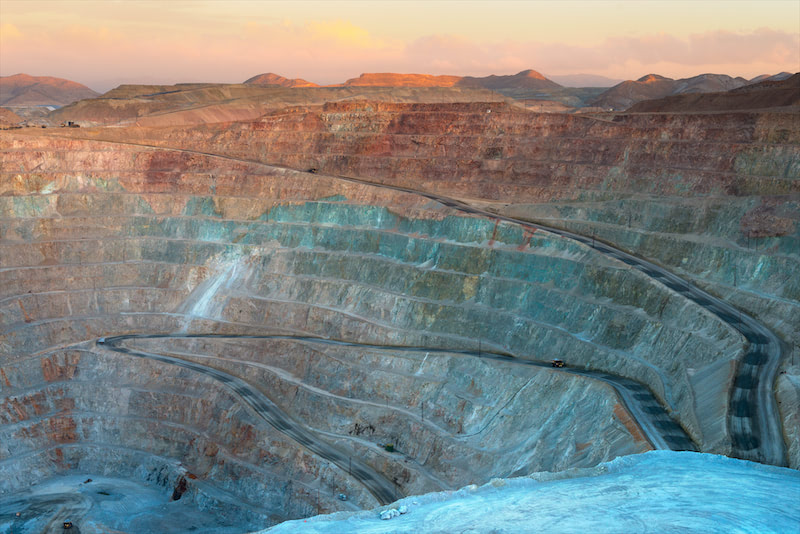by Taras Berezowsky on OCTOBER 24, 2016
MetalMiner Managing Editor Taras Berezowsky recently sat down with Kevin Dempsey, Senior VP for public policy at the American Iron & Steel Institute. Dempsey leads the AISI public policy team representing the interests of North American steel producers and also serves as General Counsel to the Institute. Before that he was a practicing attorney who specialized in trade matters.
During his years on Capitol Hill and in the private sector, Dempsey has worked extensively on international trade negotiations, including the Doha Development Agenda and the original negotiations on the accession of China to the World Trade Organization. He also has considerable experience with U.S. and international law related to subsidies, trade remedies, market access, intellectual property rights, and product standards, as well as U.S. legislative procedures for authorizing and implementing trade agreements.
This is part three of their discussion. Read part one and pick up where we left off in part two for more on the U.S., China, steel and trade matters.
Kevin Dempsey: I’m not a believer that there’s a WTO case that’s going to solve all of this problem, either, but there may be aspects of the Chinese system that can be addressed. We have successfully brought several WTO cases against China for restrictions they’ve placed on the export of raw materials.
It’s another way in which they subsidize their domestic steel producers. They restricted the export, for instance, of coking coal, which had the effect of lowering the price for their domestic producers and raising the price on the world markets for everybody else. That was a violation of their WTO commitment, so we took them into WTO and we succeeded in that the WTO changed that policy. It’s going to require firing on all cylinders and pressing on all these fronts because it’s not just one single thing in China, it’s this whole range of government policies that are at play.
So, we have to press on enforcing our trade laws, getting our allies to enforce their trade laws. Enforce, really, at every chance we get. If there’s a WTO violation to push China to address that. But then keep pressing through international forums to get China to make the necessary economic reforms domestically and get out of the steel business.
Well let’s say one of the things we have going for us compared to previous disputes that we’ve had if we went back to the 80s with Japan or others where it was basically a bilateral dispute. With a dispute with China over this steel issue, it is not a bilateral U.S.-China issue. We have equally the support of the government and the industry in Japan, in Europe, in Latin America. This truly is a global phenomenon, and that’s why you’ve seen both of the G7 statements earlier back in May about the need to address market-distorting practices by governments that lead to steel overcapacity. Then importantly, at the G20 meeting which was actually held in China over Labor Day weekend…
Taras Berezowsky: That’s a really great point about just having that coalition of other nations behind the U.S. Just two more things, Kevin. On the federal government front here, I’ve heard from certain corners that the International Trade Commission and U.S. Commerce Department and all these various agencies at play have had such trouble with enforcement because either they’re under-resourced, understaffed, what have you, they don’t have the time for this kind of stuff. Is that consistent with what you know and what you guys are seeing and hearing?
KD: Well, there’s no doubt that in the last two calendar years, 2014 and 2015, I think we saw record levels of anti-dumping and countervailing duties cases filed at the Commerce Department, the ITC, many of those were on steel but not all of them, but there were a huge number of steel cases, for instance last year.
The Commerce Department was looking at a situation where they were at a 10- or 15-year high in terms of trade cases, but they had only two-thirds the number of analysts that they had had 10 years ago. There were some resource constraints. We did get, in the last round of appropriations last year, we did get the Congress to appropriate more money for the Commerce Department for the particular agency, the part of enforcement and compliance within the International Trade Administration, and I think that has helped and they are staffing up.
They are hiring a number of new people, so I think that helps. We continue to press in our efforts with the government to continue to see increased funding levels for enforcement at the Commerce Department and to make sure that within the broad range of issues that the Commerce Department has to address that the congress identifies trade law enforcement as a top priority issue.
I will say we have a lot of support on the hill, in the congress from members of both political parties on that issue. I think that will continue to be an issue but I think we are getting the additional resources, and we continue to make that a priority going forward.
TB: How do you see this whole MES bid playing out? How do you see it playing out kind of either in the shorter term when this December 11th date passes as far as whatever is in the WTO language or longer term if it’s going to drag out the appeal process? How do you see the end game with the market economy status bid from China?
KD: That’s a good question. If you’d asked me a couple years ago, we were worried we would would see in response to the pressure from China the government starting to just change their laws in advance of the end of this year out of fear of some dispute with China.
I think we’ve made a lot of progress in that we’ve persuaded a number of governments, so many led by the U.S. government that’s been quite strong on it, that China does not deserve some automatic granting of market economy status. We won’t see any change overnight in the United States. I don’t think we’ll see a change in Canada, or in Mexico, or a number of other countries. I think we’ll see China continue to be treated as a non-market economy after December 11th. I suspect there’ll be some complaints raised about that under our system.
China always has the right under U.S. law to come in in a particular trade case and say, ‘hey, the facts have changed and we’ve proved that we’re now a market economy’ and they’re free to do that. I don’t think the facts will support them, so I expect at some point they’ll try to make that case. I don’t think they’ll be successful. Then we expect that, at some point, the Chinese will try to challenge that in another forum, perhaps at the WTO.
Maybe we’ll see a WTO dispute that comes out of that. That’s going to take some time to play out. A normal WTO case takes at least a year and a half. Frankly, the WTO has a back log of cases right now themselves with limited resources, so it could take longer. This will also play out not only in the U.S., but in other countries. We’re very focused not only on what’s happening in the U.S. but what’s happening around the world. We’ll have to see. We’re sort of the first test case, but I think this issue is going to continue well into next year at the very least.



